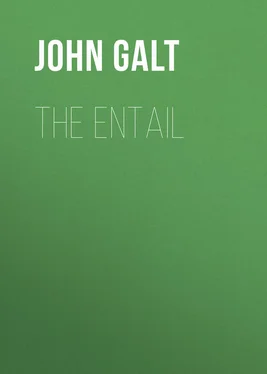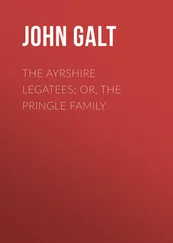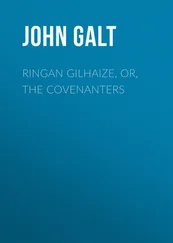John Galt - The Entail
Здесь есть возможность читать онлайн «John Galt - The Entail» — ознакомительный отрывок электронной книги совершенно бесплатно, а после прочтения отрывка купить полную версию. В некоторых случаях можно слушать аудио, скачать через торрент в формате fb2 и присутствует краткое содержание. Жанр: foreign_antique, foreign_prose, на английском языке. Описание произведения, (предисловие) а так же отзывы посетителей доступны на портале библиотеки ЛибКат.
- Название:The Entail
- Автор:
- Жанр:
- Год:неизвестен
- ISBN:нет данных
- Рейтинг книги:4 / 5. Голосов: 1
-
Избранное:Добавить в избранное
- Отзывы:
-
Ваша оценка:
- 80
- 1
- 2
- 3
- 4
- 5
The Entail: краткое содержание, описание и аннотация
Предлагаем к чтению аннотацию, описание, краткое содержание или предисловие (зависит от того, что написал сам автор книги «The Entail»). Если вы не нашли необходимую информацию о книге — напишите в комментариях, мы постараемся отыскать её.
The Entail — читать онлайн ознакомительный отрывок
Ниже представлен текст книги, разбитый по страницам. Система сохранения места последней прочитанной страницы, позволяет с удобством читать онлайн бесплатно книгу «The Entail», без необходимости каждый раз заново искать на чём Вы остановились. Поставьте закладку, и сможете в любой момент перейти на страницу, на которой закончили чтение.
Интервал:
Закладка:
‘Father,’ said the fool, ‘I hae catched a muckle bum-bee; will ye help to haud it till I take out the honey blob?’
‘I’ll go hame, Watty – I’ll go hame,’ was the only answer he made, in an accent of extreme sorrow, ‘I’ll go hame; I daur do nae mair this day,’ and he returned back with Walter to the main road, where, having again recovered his self-possession, he said, ‘I’m dafter than thee to gang on in this fool gait; go, as I bade thee, hame and tell thy mother no to look for me to dinner, for I’ll aiblins bide wi’ Kilmarkeckle.’ In saying which, he turned briskly round, and, without ever looking behind, walked with an alert step, swinging his staff courageously, and never halted till he reached Kilmarkeckle House, where he was met at the door by Mr. Bodle himself, who, seeing him approaching up the avenue, came out to meet him.
CHAPTER XXIV
Bodle of Kilmarkeckle, like all the lairds of that time, was come of an ancient family, in some degree related to the universal stock of Adam, but how much more ancient, no historian has yet undertaken to show. Like his contemporaries of the same station, he was, of course, proud of his lineage; but he valued himself more on his own accomplishments than even on the superior purity of his blood. We are, however, in doubt, whether he ought to be described as an artist or a philosopher, for he had equal claims to the honour of being both, and certainly without question, in the art of delineating hieroglyphical resemblances of birds and beasts on the walls of his parlour with snuff, he had evinced, if not talent or genius, at least considerable industry. In the course of more than twenty years, he had not only covered the walls with many a curious and grotesque form, but invented, – and therein lay the principle of his philosophy – a particular classification, as original and descriptive as that of Linnaeus.
At an early age he had acquired the habit of taking snuff, and in process of time became, as all regular snuff-takers are, acute in discriminating the shades and inflexions of flavour in the kind to which he was addicted. This was at once the cause and the principle of his science. For the nature of each of the birds and beasts which he modelled resembled, as he averred, some peculiarity in the tobacco of which the snuff that they severally represented had been made; and really, to do him justice, it was quite wonderful to hear with what ingenuity he could explain the discriminative qualities in which the resemblance of attributes and character consisted. But it must be confessed, that he sometimes fell into that bad custom remarkable among philosophers, of talking a great deal too much to every body, and on every occasion, of his favourite study. Saving this, however, the Laird of Kilmarkeckle was in other respects a harmless easy-tempered man, of a nature so kind and indulgent, that he allowed all about him to grow to rankness. The number of cats of every size and age which frisked in his parlour, or basked at the sunny side of the house, exceeded all reasonable credibility, and yet it was a common saying among the neighbours, that Kilmarkeckle’s mice kittled twice as often as his cats.
In nothing was his easy and indulgent nature more shown than in his daughter, Miss Betty, who having, at an early age, lost her mother, he had permitted to run unbridled among the servants, till the habits which she had acquired in consequence rendered every subsequent attempt to reduce her into the requisite subjection of the sex totally unavailing.
She had turned her twentieth year, and was not without beauty, but of such a sturdy and athletic kind, that, with her open ruddy countenance, laughing eyes, white well-set teeth, and free and joyous step and air, justly entitled her to the nickname of Fun, bestowed by Charles Walkinshaw. She was fond of dogs and horses, and was a better shot than the Duke of Douglas’s gamekeeper. Bold, boisterous, and frank, she made no scruple of employing her whip when rudely treated either by master or man; for she frequently laid herself open to freedoms from both, and she neither felt nor pretended to any of her sex’s gentleness nor delicacy. Still she was not without a conciliatory portion of feminine virtues, and perhaps, had she been fated to become the wife of a sportsman or a soldier, she might possibly have appeared on the turf or in the tent to considerable advantage.
Such a woman, it may be supposed, could not but look with the most thorough contempt on Walter Walkinshaw; and yet, from the accidental circumstance of being often his playmate in childhood, and making him, in the frolic of their juvenile amusements, her butt and toy, she had contracted something like an habitual affection for the creature; in so much, that, when her father, after Claud’s visit, proposed Walter for her husband, she made no serious objection to the match; on the contrary, she laughed, and amused herself with the idea of making him fetch and carry as whimsically as of old, and do her hests and biddings as implicitly as when they were children. Every thing thus seemed auspicious to a speedy and happy union of the properties of Kilmarkeckle and Grippy, – indeed, so far beyond the most sanguine expectations of Claud, that, when he saw the philosophical Laird coming next morning, with a canister of snuff in his hand, to tell him the result of his communication to Miss Betty, his mind was prepared to hear a most decided, and even a menacing refusal, for having ventured to make the proposal.
‘Come away, Kilmarkeckle,’ said he, meeting him at the door; ‘come in by – what’s the best o’ your news this morning? I hope nothing’s wrang at hame, to gar you look sae as ye were fasht?’
‘Troth,’ replied Kilmarkeckle, ‘I hae got a thing this morning that’s very vexatious. Last year, at Beltane, ye should ken, I coft frae Donald M’Sneeshen, the tobacconist aboon the Cross of Glasgow, a canister of a kind that I ca’d the Linty. It was sae brisk in the smeddum, so pleasant to the smell, garring ye trow in the sniffling that ye were sitting on a bonny green knowe in hay time, by the side of a blooming whin-bush, hearkening to the blithe wee birdies singing sangs, as it were, to pleasure the summer’s sun; and what would ye think, Mr. Walkinshaw, here is another canister of a sort that I’ll defy ony ordinary nose to tell the difference, and yet, for the life o’ me, I canna gie’t in conscience anither name than the Hippopotamus.’
‘But hae ye spoken to your dochter?’ said Grippy, interrupting him, and apprehensive of a dissertation.
‘O aye, atweel I hae done that.’
‘And what did Miss Betty say?’
‘Na, an ye had but seen and heard her, ye would just hae dee’t, Mr. Walkinshaw. I’m sure I wonder wha the lassie taks her light-hearted merriment frae, for her mother was a sober and sedate sensible woman; I never heard her jocose but ance, in a’ the time we were thegither, and that was when I expounded to her how Maccaba is like a nightingale, the whilk, as I hae seen and read in print, is a feathert fowl that has a great notion o’ roses.’
‘I was fear’t for that,’ rejoined Claud, suspecting that Miss Betty had ridiculed the proposal.
‘But to gae back to the Linty and the Hippopotamus,’ resumed Kilmarkeckle. ‘The snuff that I hae here in this canister – tak a pree o’t, Mr. Walkinshaw – it was sent me in a present frae Mr. Glassford, made out of the primest hogget in his last cargo – what think ye o’t? Noo, I would just speer gin ye could tell wherein it may be likened to a hippopotamus, the which is a creature living in the rivers of Afrikaw, and has twa ivory teeth, bigger, as I am creditably informed, than the blade o’ a scythe.’
Claud, believing that his proposal had been rejected, and not desirous of reverting to the subject, encouraged the philosopher to talk, by saying, that he could not possibly imagine how snuff could be said to resemble any such creature.
Читать дальшеИнтервал:
Закладка:
Похожие книги на «The Entail»
Представляем Вашему вниманию похожие книги на «The Entail» списком для выбора. Мы отобрали схожую по названию и смыслу литературу в надежде предоставить читателям больше вариантов отыскать новые, интересные, ещё непрочитанные произведения.
Обсуждение, отзывы о книге «The Entail» и просто собственные мнения читателей. Оставьте ваши комментарии, напишите, что Вы думаете о произведении, его смысле или главных героях. Укажите что конкретно понравилось, а что нет, и почему Вы так считаете.












